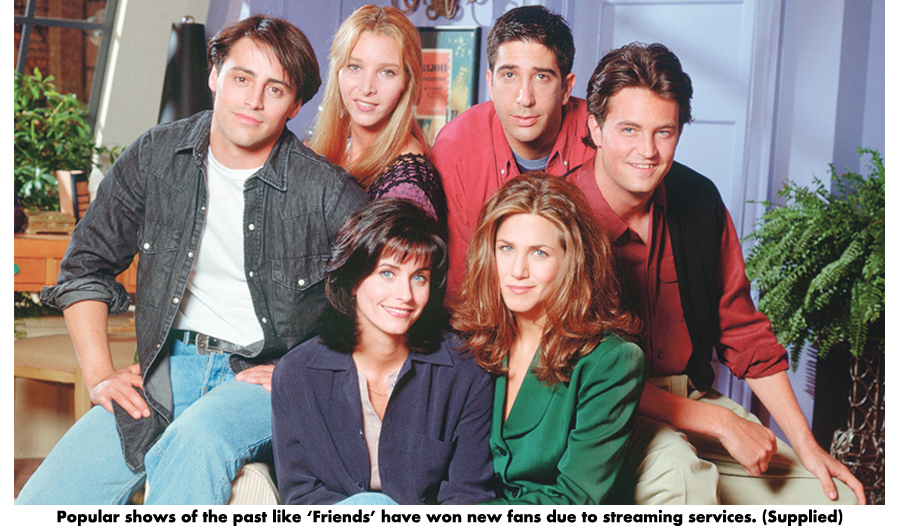JEDDAH: Ever since streaming services became available in the Middle East, leading online sites have been dictating people’s tastes and preferences, their mass media effect influencing Saudi Arabia as it does the rest of the world.
Sara Al-Rifai, an English instructor in Jeddah, believes that streaming services are gaining influence in mainstream culture simply because younger people are unwilling to watch cable TV and sit through ads, or wait a week or more for new content.
“Competition on quality and cost is another factor in favor of streaming services. Neflix’s monthly subscription is affordable. The quality of its shows is rapidly improving, and many of its films and series have won prestigious awards such as the Oscars,” she told Arab News.
Renad Flimban, 26, from Jeddah, said that movies and TV shows have the ability to set mainstream culture in areas ranging from food to fashion and even hairstyles long before streaming became available.
“New streaming services have just made it easier to consume the media and the culture behind it,” she said.
The popular HBO series “Game of Thrones” is perhaps the best example of pop culture “spread,” with local fans joining a global audience in their love for the show. Many viewers in the Arab world watched the series on OSN, while it was also available on HBO.
New streaming services have just made it easier to consume the media and the culture behind it.
Renad Flimban
“I think it blew up here even though it was on HBO, which isn’t that popular here, because people seemed to really like/dislike the characters and the writing. They had extremely strong feelings on both ends of the spectrum,” Flimban said.
Popular shows in the 1990s and early 2000s have been reinvigorated after streaming services acquired the rights to reshow them for viewers. Many popular shows that used to air on MBC2 and Saudi TV, such as “Friends,” “Full House” and “The Fresh Prince of Bel Air,” have won new fans following recent exposure.
“Most of these shows’ themes — friendships, families and relationships — are still relevant today, and having easy access to these shows on current media platforms certainly helped to introduce them to a new audience and reconnect with an established audience,” Flimban said.
Al-Rifai agrees, saying these shows have become more popular among a younger generation due to their availability and a desire to understand the hype surrounding them.
“‘Friends’ is still the most-watched show on Netflix, yet it has been criticized for tolerating sexism and body shaming,” she said. “The generation gap and viewers’ beliefs affect the way they perceive a show, no matter how popular it was in the past.”
HIGHLIGHTS
• Fans of popular shows and films in Saudi Arabia behave just as worldwide fans do.
• Young Saudis collect merchandise and organize character-themed parties.
For Razan Sijeeni, a Jeddah university graphic design instructor, the pinnacle of pop culture in the Kingdom would be “Tash Ma Tash,” which aired every Ramadan for 18 years, often tackling conservatism and racism, among other controversial social issues.
“Unfortunately, there is very little authentic representation of our culture in our own media nowadays, and whatever there is, even when it’s well executed, it is being Westernized and viewed through a Western gaze,” she said.
However, Sijeeni has Netflix to thank for her favorite series, “Star Trek,” which she discovered on the streaming site.
“It was fascinating to me, watching the visuals of an explosion or space in the 1960s, and how the series progressed and improved considerably as the years went by,” she said.

Sijeeni said that online streaming also offers people from around the world an introduction to different cultures, languages and beliefs at the press of a button.
“I’ve seen a Saudi influencer meet the cast of “Money Heist,” and people were reacting to it — it’s like they know these people and it isn’t just a show.”
She said that in an age where the internet has a growing place in people’s lives, even individuals who don’t watch shows such as “Game of Thrones” and “Friends” still know who the characters are, and go as far as creating memes to help cope with the coronavirus crisis, for example.
Fans of popular shows and films in Saudi Arabia behave just as worldwide fans do, collecting merchandise, holding character-themed parties and recreating recipes from fictional universes.
Flimban’s favorite show since 2010 has been “Gilmore Girls,” and she admits to owning a few show-inspired items and attending a “marvelous” Gatsby-themed party.
Sijeeni had not been as lucky with her “Star Trek” obsession, however, and said that she was envious of fan events she saw happening worldwide. “My favorite mug was given to me by a friend,” she recalled. “It has the main ‘Star Trek’ six and they transport as you fill the mug with boiling water.”
Now she is on the hunt for a “Star Trek” pilot jacket. We recommend Etsy artists for fan-replicated items.







































